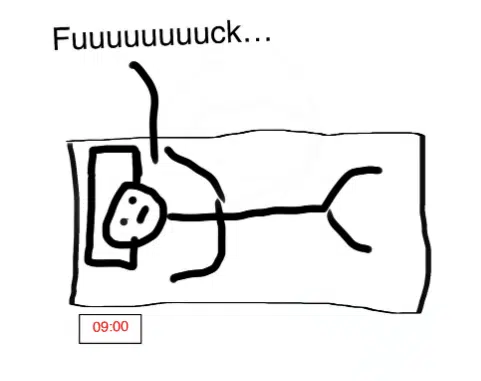How to Start Journaling. And a Free Journal PDF
How to Start Journaling
I remember asking myself this very question: “How to start journaling?” Truth is, I had no idea. And when I looked it up, the advice was mainly an outline for the benefits of journaling and why you should start journaling (which is great and I will touch on those), but there were no practical tools or methods for how to start journaling. And I like practical, useful, applicable tools and methods that I can actually use. I wanted something more concrete: actual methods I could try out for myself. So here are the best ways to start journaling today.
But first, we need to make time.
Planning time to journal is no easy feat. It takes exactly that, planning. Lucky for you, it doesn’t take that much time to get your thoughts down on paper once you plan and carve out a time to start journaling. The best time I have found to do my daily journal is in the morning – nothing really beats some gratitude and getting your thoughts and goals down first thing. Getting clear on exactly what you want to accomplish for the day (and your life) to feel happy with yourself isn’t bad either. You know, before that ol’ pesky thing called life gets in the way and slaps you around a bit.
But where the heck do you start?
I know you like your coffee (and I’m slowly moving to the coffee-is-amazing-and-I-love-it team), so with your morning coffee is a delightful time to sit down and get all those thoughts written down. There are a whole bunch of journal styles out there. I outline the best-of-the-best here and I even put together a FREE Journal PDF for you influenced by some people who know their stuff: Mel Robbins, Stephen Covey, Brene Brown, Tim Ferriss, Brendon Burchard, Tom Bilyeu, and James Altucher.
Why You Need to Start Journaling
Simply, improved mental health and the supporting research. As journaling has been around in various forms throughout the ages, the research has caught up showing that it is effective.
Want to manage negative emotions and manage reactivity in the future? Start journaling.1
Want to cultivate an awareness of the positive benefits resulting from a stressful or traumatic past experience? Start journaling.2
Want to use positive-emotion words, a moderate amount of negative-emotion words, and increase your use of cognitive words to improve your mental and physical health in as little as 15 minutes a day? Start journaling.3
Are you an overthinker like me? Start journaling.
What Exactly Is Journaling?
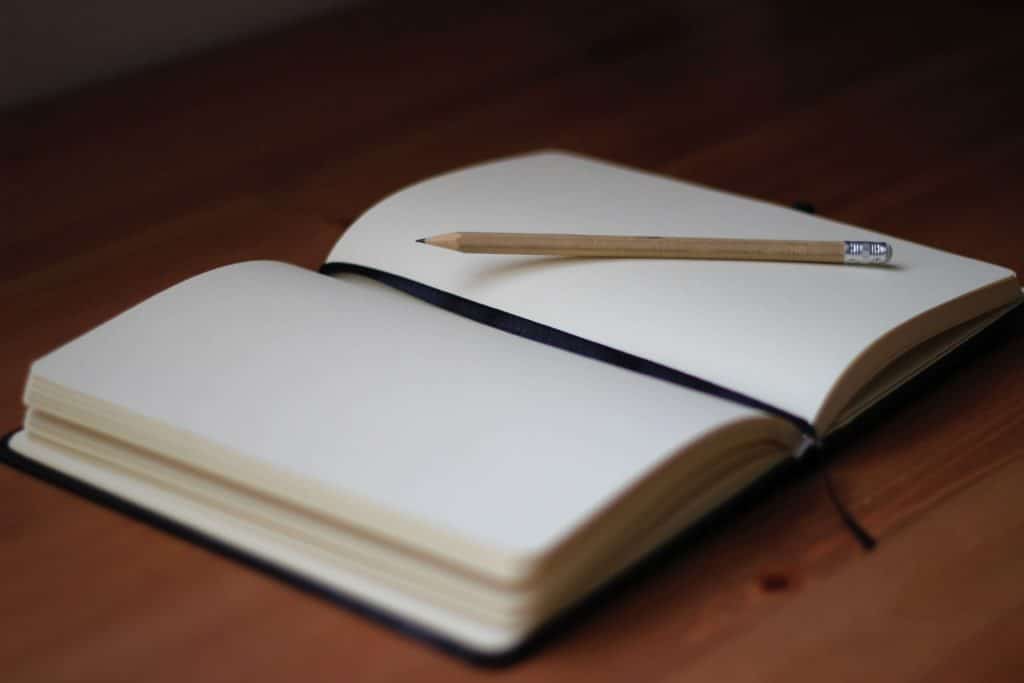
We hear it a lot, journaling. I am guilty-as-charged for spreading the benefits of journaling: “How to start journaling” and “How it can change your life” and all that jazz. But does it really live up to the hype or is it just another thing to add to the To-Do List? Well, it’s a bit of both actually.
Journaling comes in many shapes and sizes, but at the end of the day (get it?) it is up to you to decide what journaling means to you, and what style fits you best. You can follow one of the styles I’m about to dig into.
Or, it could be getting out a big empty notebook and furiously writing about how much you’d like to stick a pencil in your ex’s eye socket, but you’re working on practicing gratitude and you know you shouldn’t feel that way, but you kind of do anyways, and now you feel guilty about feeling that way because you know you should be thankful for the lessons that you learned from the relationship and breakup…but they were horrible to you…but…fuck it! You are going to write about whatever you feel like writing about.
And that is okay because it is your journal and you can write whatever you want in it. I do it all the time.
Tangent much?
Where was I? Ah, yes, how to start journaling. You get to treat it any way you see fit. You get to write, or draw, or scribble anything your heart desires. Don’t confine yourself. Make it enjoyable. Make it something that works for you because, hey, the research is there to back it up and things in life must be fun. And if that’s not enough convincing for you, just remember that people were doing it a long time ago. I mean like a really long time ago.
Journaling in the past, when they used the blood of their enemies (or maybe it was a Quill pen with ink) was used as a way to think through thoughts. As Mark Manson says in his article How to Feel Better, many great minds throughout history didn’t journal for mental health but to help themselves think: Marcus Aurelius (a Roman Emperor from nearly 2000 years ago), Benjamin Franklin, Charles Darwin, and Winston Churchill to name a few pioneers in journaling. If they thought it was a good idea, then it must have some merit worth experimenting with.
There were no studies documenting the benefits of journaling when these guys were doing it. They just did it. Like many of us, they felt a natural inclination to write down their thoughts. With the more recent shift toward mindfulness in our ever more chaotic world, now is a perfect time to start journaling.
I don’t know if Marcus Aurelius was holding weekly journaling and mindfulness sessions in the courtyard while running an Empire, but maybe he was. Maybe they did do that back then and somewhere along the way we got derailed from doing these practices as we started to live in societies that were moving too fast for sitting still.
Here are a few methods I have used to start journaling and have experimented with:

“The Technician”: How to Start Journaling With a Computer“
Ever tried furiously typing out your thoughts on a Word or Google Doc? Well, I have. It’s not as fun as one would think. I found that it didn’t help me feel clear and ready for the day. Sure it flowed, but something felt off about it. It wasn’t personal enough and I felt detached from my thoughts and emotions. That’s just me, though. Maybe you’ll love smashing the keys and airing out your fears and insecurities on the screen in front of you.
Then there is that – another screen in the morning while you are trying to dive deep into the darkest depths of your forbidden soul isn’t ideal. I even found it opens a little side door for our good friend distraction to sneak right in. Besides, there is something magical about putting pen to paper.
In a 2017 study on journaling benefits, they concluded: “Sensory-motor information for the control of (pen) movement is picked up via the senses, and because of the involvement of the senses they leave a wider mark on establishing pathways in the brain, resulting in neural activity that governs all higher levels of cognitive processing and learning.”4
In other words, written journals are better.
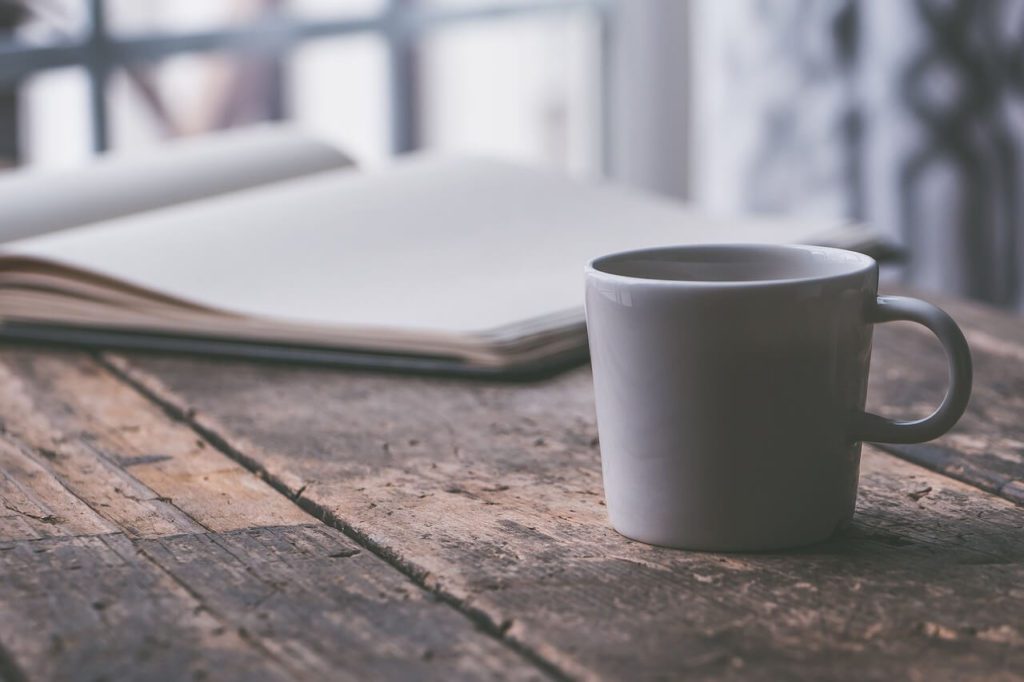
“The Creative”: How to Start Journaling With an Empty Notebook
Stephen King, in his book On Writing, says in no uncertain terms “You must not come lightly to the blank page.” This holds true in writing and, in this case, the blank page of your journal. It is an event in an arena of your own making: one you must enter with intrigue and curiosity, casting aside expectations.
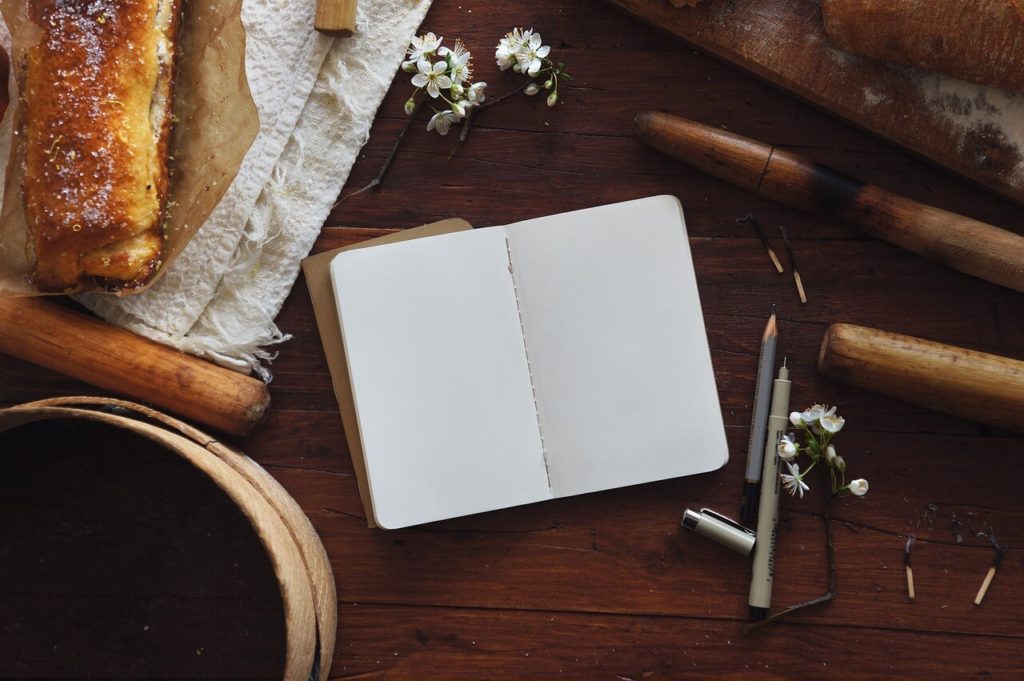
The same 2017 study showed that by using our hand to write when combined with drawn visualizations (pictures, arrows, shapes, symbols) activated larger networks in the brain; thus, “a clear recommendation might be to combine traditional handwritten notes with visualizations (e.g., drawings, shapes, arrows, symbols).” Accessing various regions of the brain allows for a more creative and engaging approach to journaling, deeper learning and processing of past experiences, and increased cognition.
Time to get out those old crayons and markers and summon your inner child.
Einstein and Theta Brainwaves
The study also suggested that this writing-with-drawing technique allows us to drop into a Theta brainwave state, which is known for creativity, reaching the subconscious, and even problem-solving.
It is even said that Einstein took frequent naps while sitting in a chair holding a steel ball in either hand. As Einstein would drift off to sleep he would enter Theta, accessing his subconscious, and at the moment he fell asleep, the steel balls would clank to the floor shocking him awake. He would furiously write down all of the thoughts and solutions he had just accessed.5
I haven’t met the guy, so I don’t know if it is true, but I’ll ask him when I see him. There are a ton of similar stories floating around the internet-of-things, and since facts change quite often, I always take a second to question.6 Regardless, this “semilucid” creative brainwave state is pretty well documented and growing research is expanding on its benefits.7
Accessing the Theta brainwave state on a regular basis has been linked to a reduction in anxiety and symptoms of fear. With those pesky emotions out of the way (or reduced at least), you will be able to dig a little deeper into your subconscious.
I don’t know about you, but having a trusty journaling habit that I could return to each morning knowing that it is going to help me reduce anxieties and sift through the fears and doubts that are holding me back…where do I sign up?
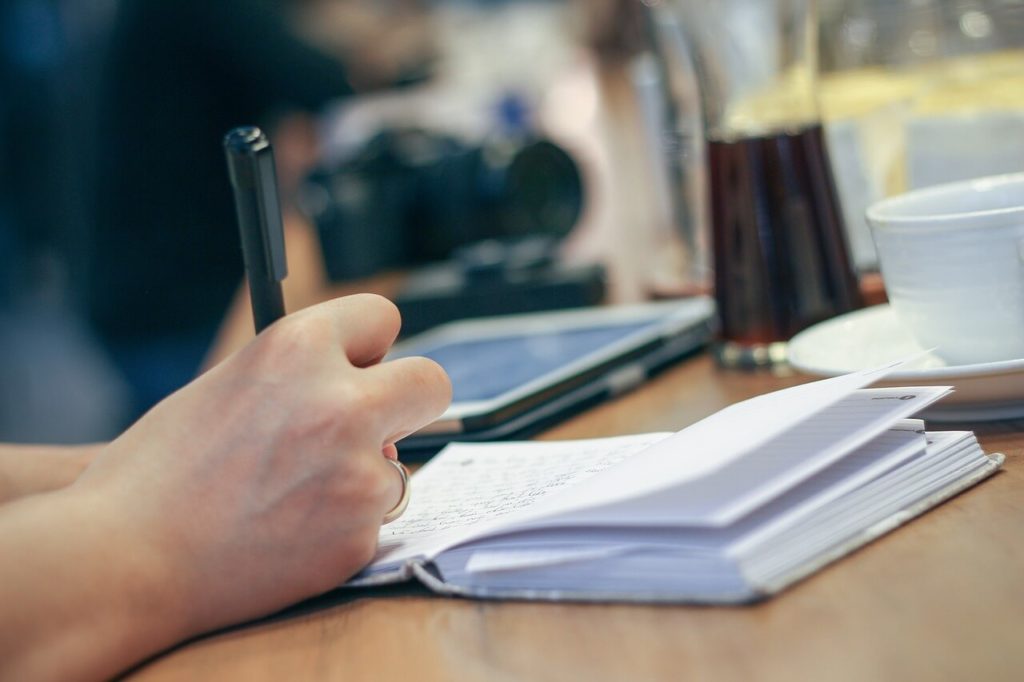
“The Overthinker”: How to Start Journaling to Get All Your Thoughts Out
If you are like me and you think a lot of thoughts a lot of the time, welcome. It’s nice to meet you. More importantly, welcome to the journaling technique that has worked best for me. Some call it The Brain Dump, Stream of Consciousness journaling, and Morning Pages (as described by Julia Cameron in The Artist’s Way).
What all of them come down to is one thing: write. Nothing else. No censoring yourself. No thinking. And certainly no editing. Just sit down, open the notebook, and write. And keep writing until you’re done.
I love these notebooks when I’m doing Stream of Consciousness journaling.
Julia Cameron recommends writing 3 full pages. (Full disclosure, I hated it after a while. It took too long, nearly 30-40 minutes, every single morning.) With prioritizing exercise and meditation when waking up, it felt like too much. That’s not to say that it didn’t work. It did. I got a lot of my thoughts out to cleanse my mind before beginning the day. It was time-consuming, though.
I did, however, stick to my commitment of 30 days straight (I think I made it to around 40 days) until I realized that I could adapt it to my liking. So I did just that. And that is my number one tip I will return to in all my musings – find what works for you. I used to hate that expression for so long because I just wanted the exact blueprint of what I should do to change my life around, but the reality is, there is no one-size-fits-all approach. That would be bonkers! However, there is a one-size-we-can-all-try-on-and-adjust-the-settings-as-we-go blueprint.
Adjust-the-settings I did. I started to relax on the constraints set by the Morning Pages and just wrote. Somedays, writing three pages comes naturally. Other days, it’s just two. And often, it’s one. Magically, I started to enjoy it. A lot. I look forward to it now. Sitting down with a coffee or tea and just clearing out a few of the nagging thoughts before I roll into my deep work. The ability to do deep work – concentrated, focused, uninterrupted work – is a superpower these days, but that is a topic for another day.
You can check out Deep Work by Cal Newport here (Print | Ebook | Audiobook)
Many days I just sit down and write anything that comes to mind. As an overthinker, thoughts flow quite easily. I haven’t had to stop once to think about what I should write. If you classify yourself as an overthinker, start here. I often like to add some “topics” that I want to write about each day: mainly Gratitude, Goals, and the Daily Highlight. All of which I have outlined in the next method: The Only Journal: A Free Journal PDF: my hodgepodge creation of brilliance if I don’t say myself.
The Only Journal PDF
“The Strategist”: How to Start Journaling With the Only Journal PDF
This Free Journal PDF was created out of necessity. All of the styles I tried and experimented with weren’t giving me what I was seeking: sifting through and organizing an overthinking brain while maintaining a purpose for journaling can be tricky. So, The Only Journal was born. It contains all the elements needed: motivation and positive thoughts before transitioning into some gratitude. After that, you hone in on the values and character that you want to show up within the world. Then we look at goals: long-term, short-term, and daily. Finishing up with a few minutes of fun: creative writing, creative thoughts or simply a brain dump. This method has been the perfect way for me to start the day.
The only rule: there are no rules.
That’s the best part. You can pick and choose sections you want to recalibrate each day. Or you can do all the sections. It’s up to you to make it work for you.
The Only Step For How to Start Journaling
Step 1 in most self-help arenas, especially around how to start journaling, is Just Start, Just Do It, Get Started or some subtly threatening euphemism of “Stop being a wimp and just get going into the unknown or your life will crumble to ruins and you will regret everything, forever!” For starters, that is ridiculously unhelpful. Two, I do and will use those types of phrases (a heads-up in advance!) because nothing ever – and I mean ever – gets done without action. Trust me, I’m an overthinker. I know. And three, before starting you need this one simple tool: Step 1 = the ability to relax.
Without a shred of doubt, having the ability to approach new projects with a let’s-see-how-this-goes attitude will alter the trajectory of your life. I’m serious. It is prescribed (by me) as Step 1 for all things involving changing your life. If you go in all high-strung and committed to journaling (or anything in life) every single day for the rest of your life without fail, well, then, you will do just that: fail.
Now, I’m not saying it is impossible or that you shouldn’t set lofty goals for yourself – you should. But when it comes to getting started and making any change in your life or habits and routine, like how to start journaling – then it is best to ease into it. Slow down a little and build some awareness around the process. The idea is to enjoy the enjoying. Journaling is enjoyable. But if you make it into another “To-Do” you will overlook the enjoyment of it and quickly add journaling to your growing “I need to do more of that” list.
Don’t get me wrong, the goal is long-term commitment to success: I now write every day, read daily, wake up at 5 am, exercise and eat healthy daily, without fail; however, I eased into it. If you try right now to eat every single meal healthy or exercise for one hour for the rest of your life if you have never attempted to do so, you will fail. That is a reality you must embrace because, after all, you are human. And humans are emotional. And emotions make you do shit you don’t always want to do.
So, how to start journaling? Plan to fail strategically. Plan to journal a few times your first week, not doing it the other days. Then you aren’t failing. You are planning not to do it on those days. Then you keep your promise that you made to yourself. You show up and start journaling.
Maybe just start journaling once this week to start.
But one thing is vitally important: Just Start.
- https://pubmed.ncbi.nlm.nih.gov/17576282/ ↩︎
- https://link.springer.com/article/10.1207/S15324796ABM2403_10 ↩︎
- https://jhu.pure.elsevier.com/en/publications/forming-a-story-the-health-benefits-of-narrative-6 ↩︎
- https://www.ncbi.nlm.nih.gov/pmc/articles/PMC5422512/ ↩︎
- https://www.inc.com/jessica-stillman/sleep-creativity-thomas-edison.html ↩︎
- https://www.scientificamerican.com/article/thomas-edisons-naps-inspire-a-way-to-spark-your-own-creativity/ ↩︎
- https://www.science.org/doi/10.1126/sciadv.abj5866 ↩︎
If You Liked This “How to Start Journaling” Article Then…
*If you use the affiliate links in here a magic genie will suddenly appear in front of me granting me unlimited wishes, at which point I will then immediately wish for something like 100 billion dollars, a submarine, a funny hat, or something cool like that. So just assume that if you use the links to buy anything I make tons of money and become filthy rich. Besides this last statement, I practice radical honesty, and anything I ever recommend is something I stand by.








